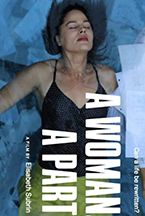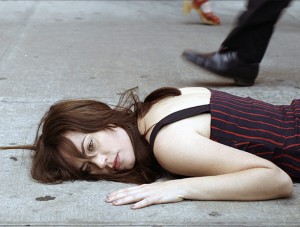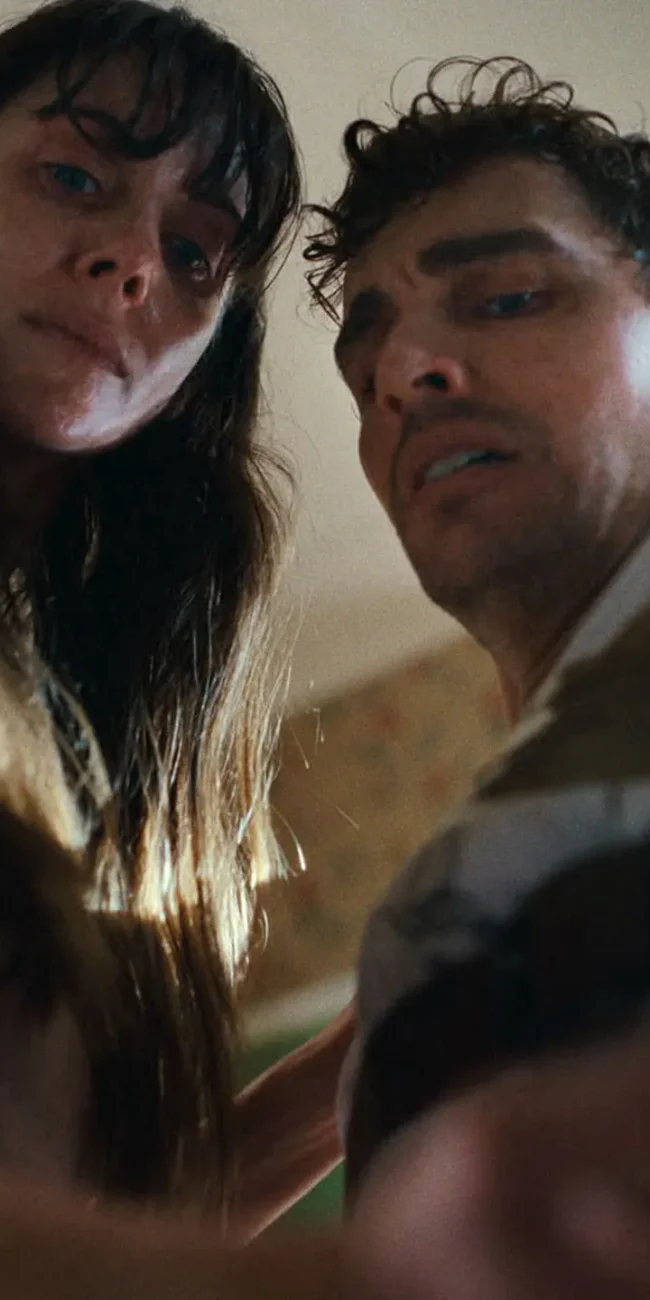
(BamcinemaFest has quietly become one of the most prestigious film festivals in the world. It runs June 15-26 and is chock full of awesome film selections.)
It’s always interesting to see which films end up in the program for the BAMcinemaFest. Many are culled from top festivals and are making a stop at BAM between festival premiere and commercial release. The BAMcinemaFest acts as curator and fan, bringing the films to a New York audience in the know but not connected enough to get to Sundance. It’s where I first saw Beasts of the Southern Wild, After Tiller and Krisha. But as much as I respect the curation it can at times feel a little too on-brand as a showcase for the young darlings of indie film. Which is why Elisabeth Subrin’s A Woman, A Part was such a lovely surprise. A simmering drama about friendship and how it weathers the passage of time, the film feels like a play committed to the screen, and I mean that as a compliment. Directors trying to get around the limitations and logistics of low-budget filmmaking often fight cinematic artifice with technique (handheld, shaky camera) or lack of technique (casting non-actors) to communicate “truth.” Though her background is in experimental film, for her feature debut Subrin took what feels like a radical approach of entrusting the truth of her story to highly skilled actors. There are a few poetic flourishes, but A Woman, A Part is about performance and emotional honesty.
The woman of the title is Anna Baskin (Maggie Siff), a successful actress living in Los Angeles. A role on a popular television show has made her famous, but she has lost her passion for her craft and is spiraling into a crisis. Despite the best efforts of her exasperated manager Leslie (Khandi Alexander) Anna threatens to walk out on her studio contract, coming perilously close to tanking her career. Under the guise of having to find new tenants for her Brooklyn apartment Anna escapes to New York, but once she arrives she dodges calls from Los Angeles and collapses into the apartment, in no hurry to leave. At first Subrin doesn’t give us much, and Anna’s breakdown seems like a spoiled tantrum, though a brief, jarring scene reveals that she has recently recovered from an autoimmune disease. Whatever the accretion of trauma, Anna is unmoored. She snorts Ritalin in an attempt to plow through a pile of scripts, mocks the cliched writing, then tosses the scripts into her swimming pool. It’s an obvious but potent metaphor for creative west coast aridity – water, water everywhere, nor any drop to drink.
As soon as she arrives in New York Anna begins trawling through the boxes that contain her past, lining her bedroom with old photographs. This nostalgia takes sharper form when Anna shows up at a birthday party to reconnect with her estranged theater buddies Kate (Cara Seymour) and Isaac (John Ortiz). While Anna flew off to Los Angeles, Kate and Isaac dug in, wrestling with New York, unfulfilled ambitions, addiction, and family. Anna got famous, Kate got sober and studied meditation, and Isaac got married and had a family. The triad of their friendship is the spine of the film, and all three actors are wonderful, finding layers in the nostalgia, envy, resentment, and yearning of their shared history. Isaac embraces Anna’s return while Kate keeps her at arm’s length, but when Anna discovers that Isaac has written a play about their friendship it dredges up the bitter past they were all trying to avoid.
Fully in control of her material, Subrin does not force any easy answers or reconciliations. Like the North Brooklyn neighborhood of their youth, what is lost is lost. Their faces are lined, dreams have withered, the music of gentrifying Brooklyn is the irritating percussion of jackhammers. So much of the film is dedicated to unraveling that the hopeful ending comes as a surprising twist. There is catharsis in revisiting (revising?) the past, but the friends find peace by moving forward. Subrin is careful in crafting her story, acknowledging Anna’s privilege without discounting her suffering. She knew New York held an answer to her crisis, but ultimately Anna isn’t healed by Chinatown acupuncture, or an anonymous romance, but by an act of kindness for people she loves. It’s a beautifully earned moment in the story, and suggests a profound definition of friendship as a source of grace.
– Susanna LoCascio












